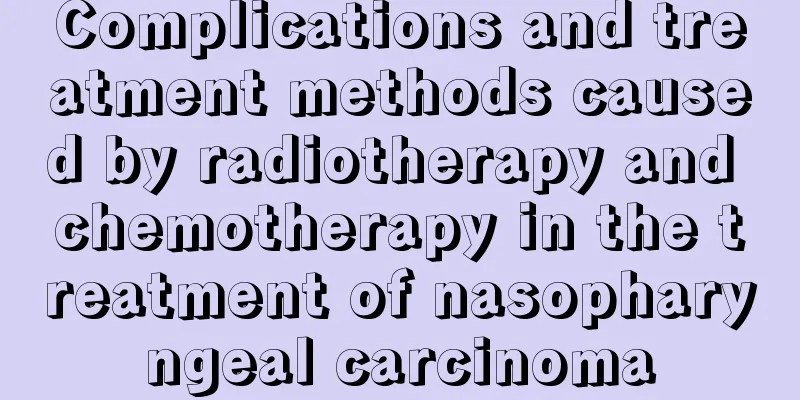Symptoms before death from advanced lung cancer

|
The symptoms of advanced lung cancer before death are often more obvious, mainly including local advanced symptoms and symptoms of widespread metastasis and spread. Common symptoms before death include hoarseness, chest pain, shortness of breath, fever, hemoptysis, etc., which bring great pain to patients. Generally speaking, the treatment of advanced lung cancer is also mainly based on controlling symptoms to achieve the purpose of stabilizing the condition. When lung cancer patients reach the late stage, cancer cells are constantly spreading. What are the symptoms of late-stage lung cancer before death? Many people are relatively insensitive to the survival of patients with late-stage lung cancer. Because they do not know what the symptoms of late-stage lung cancer are before death, they do not take timely treatment measures when they are critically ill, causing lifelong regrets. Lung cancer not only destroys the functions of the human organs, but also destroys the body's immune function, causing the body's yin and yang to lose balance, leading to organ failure and the appearance of pre-mortem symptoms of late-stage lung cancer, thus causing death. Symptoms before death in advanced lung cancer 1. Lump: formed by the malignant proliferation of cancer cells, which can be felt by hand on the surface or deep inside the body. Cancer of the thyroid, parotid or breast can be felt in the shallow part of the skin. Tumor metastasis to lymph nodes can cause lymph node enlargement. Some superficial lymph nodes, such as cervical lymph nodes and axillary lymph nodes, are easy to feel. 2. Pain: Pain often indicates that cancer has entered the middle or late stages. It is usually dull pain at first, and is more obvious at night. It gradually worsens and becomes unbearable, day and night. Severe pain is a symptom of late-stage lung cancer before death. If it occurs, it is usually controlled by drugs. Pain is generally caused by cancer cells invading the nerves. Many people feel extremely painful in the late stages, and even taking medicine does not work. 3. Ulcers: They are caused by the rapid growth of cancerous tissues in some surface cancers, insufficient nutrition supply, and tissue necrosis. For example, some breast cancers may cause crater-like or cauliflower-like ulcers in the breasts, secreting bloody secretions, and may have a foul odor when complicated by infection. In addition, stomach and colon cancers can also form ulcers, which can generally only be observed through gastroscopy and colonoscopy. 4. Bleeding: It is caused by cancer tissue invading blood vessels or rupture of small blood vessels in cancer tissue. For example, lung cancer patients may cough up blood and have blood in sputum; patients with stomach, colon, and esophageal cancer may have blood in their stool. Late-stage lung cancer can cause bleeding symptoms. If the condition is not controlled, it will lead to terminal symptoms of lung cancer, causing lung cancer patients to suffer and be in excruciating pain. |
<<: How much does radiotherapy for lung cancer cost?
>>: Causes of non-small cell lung cancer
Recommend
How long can you live with rectal cancer?
How long can a person with rectal cancer live? Th...
How to eat properly in late stage of pituitary tumor
It is said that "food is the first necessity...
Fresh milk shelf life
Modern people's lives are very busy, and it i...
What diseases can ozone blood therapy treat?
Ozone is a word we often hear. It is an allotrope...
What should I do if I have a stomachache before the college entrance examination?
Many people will experience the college entrance ...
The pros and cons of teeth cleaning, the pros outweigh the cons
Sometimes we find that we have been brushing our ...
How to distinguish glioma
In recent years, the emergence of glioma has caus...
What are some tips for getting double eyelids
Eyes are the first of the five senses and are mai...
What medicine is used for polycystic ovary amenorrhea
In our lives, many people suffer from amenorrhea ...
What kind of diet should I pay attention to when I have thyroid cancer?
What kind of diet should you pay attention to if ...
What are the misconceptions about breast cancer? Five causes of breast cancer
Breast cancer is a very harmful cancer. We must u...
There is a fleshy weight growing outside the anus_What is the fleshy weight growing outside the anus?
Hemorrhoids are a very common anorectal disease i...
What to do if your child is anxious before the college entrance examination
The college entrance examination is the most impo...
How to fall asleep quickly
How to fall asleep quickly has become the dream o...
Can fitness lower blood sugar?
Modern people pay more and more attention to phys...









